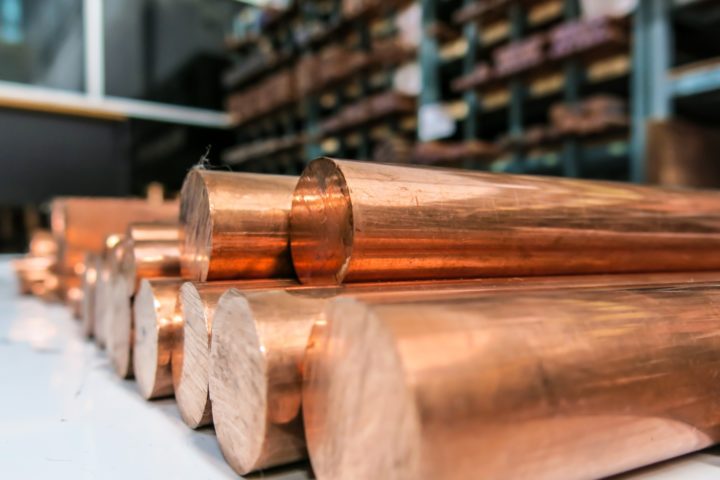As climate change nears the point of no return, world leaders are scrambling to respond by announcing ambitious carbon emission targets and clean energy policies.
Achieving the green energy transition through decarbonisation requires enormous amounts of metals, including copper, which cannot only be produced through recycling.
The urgency for global climate action was never clearer as leaders gathered in Glasgow last November and pledged to cut emissions and, among others, push for sustainable transport systems.
Although there was disappointment with the outcome of the COP26 UN climate conference, the US, UK, and Germany have already pledged billions in schemes for cleaner public and private transportation.
Neighbouring Israel plans to ban fossil fuel vehicles by 2030, five years after Norway.
Cyprus has not yet made such radical decisions, but it will allocate more than €500 mln by 2026 to tackle climate change, including adopting new policies to promote the use of cleaner fuel and renewable energy sources and encourage investment in eco-friendly transport.
Late last year, the government launched an €8m-scheme in the form of an “eco-reward” to purchase electric vehicles.
The scheme concerns the purchase of new and used electric vehicles, with an additional subsidy given to beneficiaries who scrap their old cars.
The aim is to boost electric vehicle registration to 25% of new registrations (to around 36,000 electric vehicles) by 2030.
Electric vehicle proliferation
Against this backdrop, it is worth delving deeper into copper’s role in this transition, specifically the electric vehicle revolution.
According to various studies, the wider proliferation of electric vehicles will push demand for copper much higher.
While it is known that electric vehicles and buses use about 4-16 times more copper than gasoline-powered ones, short-term demand for the metal will not come from the car industry but from the charging stations and related power infrastructure needed to support EV growth.
According to Scottish consultancy Wood Mackenzie, there will be more than 20 million EV charging points by 2030, consuming over 250% more copper than in 2019.
Furthermore, some experts believe that the world’s major car manufacturers will be producing over 5 million electric cars each month by 2025.
Meanwhile, European consumers increasingly want to live more sustainably, with 67% of them saying they will opt for a hybrid or electric car the next time they buy a vehicle, according to a European Investment Bank survey.
Cyprus copper
However, copper supplies are falling dangerously when demand is going into overdrive worldwide.
Capacity was further stalled in 2020, and researchers predict that the shortfall will rise steadily over the next years.
In 2021, Glencore Chief Executive Ivan Glasenberg told the Qatar Economic Forum that copper supplies needed to increase by one million tonnes a year until 2050 to meet an expected demand of 60 million tonnes.
“Today, the world consumes 30 million tonnes of copper per year, and by the year 2050, we’ve got to produce 60 million tonnes of copper per year”, he pointed out.
This need is even more prevalent in the EU, which is fully committed to the green energy revolution and imported a total of US$10.11b of copper in 2020, according to the United Nations COMTRADE database on international trade.
The EU is increasingly recognising that the European mining sector is crucial in securing the necessary raw materials needed to achieve the ambitious goals of the Green New Deal.
Indicative of this trend was the publication of voluntary EU principles for sustainable raw materials by stakeholders and the Commission, which aim to contribute to the industry’s sustainable development.
Modern mining companies like Venus Minerals, which is at the forefront of the revival of Cyprus’s long and esteemed mining tradition, can contribute to the sustainable extraction of raw materials, allowing Europe to achieve its Green Deal objectives.
In this environment of rising demand and dwindling copper supplies, Cyprus can emerge as a key European copper producer, as it boasts significant untapped mineral deposits.
Venus Minerals is currently working on a portfolio of projects in the Troodos region; it will develop Cyprus’ first new copper deposit since the early 1990s at Apliki.
By Peter van der Borgh, Managing Director of Venus Minerals










